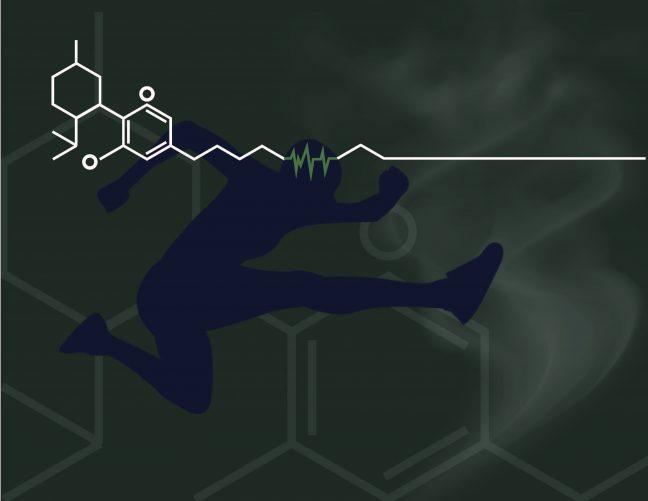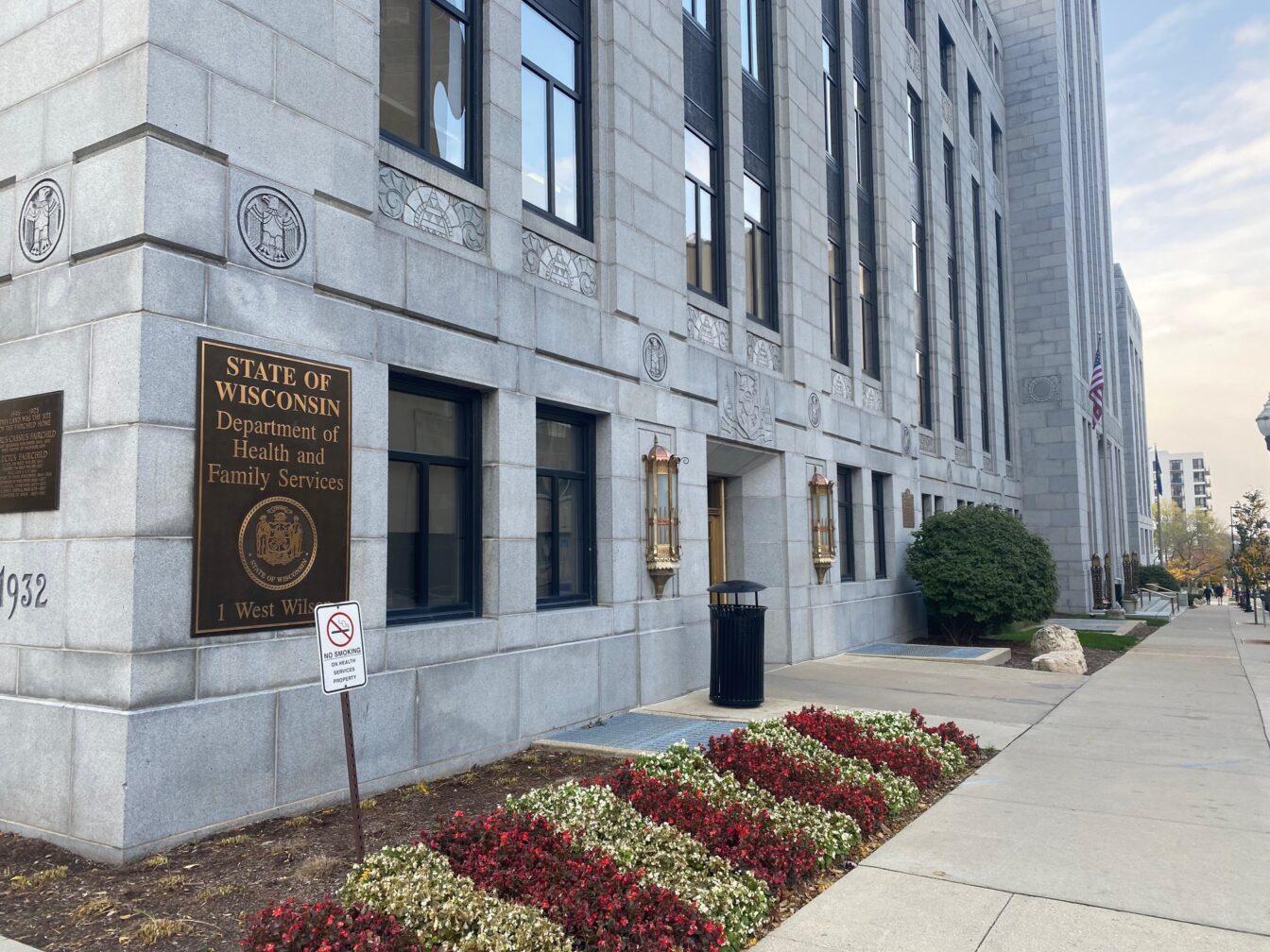David Wells, a retired All-Star Yankees pitcher, said he is living proof that cannabidiol can transform an individual’s life. Cannabidiol, better known as CBD, is a chemical compound in cannabis that has started permeating the sports world.
In an interview with ThePostGame in 2016, Wells said he hopes major sports leagues will start to realize its potential too, instead of focusing on “quick fixes.”
“They need to open their eyes and understand what this can do. I would rather see a guy take CBD or medical marijuana than see a guy taking a painkiller,” Wells said.
Wells admitted in the interview that he spent a large portion of his 21-season career under the influence of heavy painkillers.
The physical toll pitching took on his body landed him in the operating room for a plethora of surgeries due to injuries he sustained during his career. Prescription painkillers, introduced to him after one of his first surgeries, became part of his daily regimen to stay competitive in the MLB. His drug abuse carried on throughout his entire career and even after his retirement in 2007.
After seeing a segment on TV about CBD, he decided to give it a chance. Wells said he now uses CBD oil instead of pills to manage his pain. The relief he felt from CBD instantly turned him into an advocate for change in how sports leagues handle pain management.
A Joint Effort
Athletes like Wells and even Wisconsin’s Brett Favre have opened up the conversation about drug abuse in sports. CBS reported that in his Packer days, Brett Favre took a month’s worth of painkillers in two days. Ex-Detroit Lions wide receiver, Calvin Johnson, said trainers handed out painkillers “like candy.”
It’s clear Wells is not alone in his call for change, as CBD has become a budding trend in the sports world. Professional athletes like Rob Gronkowski, Ryan VandenBussche, University of Wisconsin alumni David Ahrens and former NCAA athlete Treyous Jarrells, among many others, have come out over the past few years to publicly declare their support for CBD as well.
A large community of athletes, from runners to volleyball and football players, have become ambassadors for advocacy organizations like Athletes for Care, which funds research on CBD and other solutions to health issues athletes face. Recently, tennis player John Inser even became the face of a CBD-infused sports drink called Defy.
CBD can be taken in the form of oils, topical lotions, capsules and pills, edibles or through vaping devices.
Advocates have cited perceived benefits like relief from pain, inflammation and stress, and increased focus, better recovery and sleep — not to mention the non-addictive characteristics of CBD that are appealing to many as well.
CBD supplements could have greater value than coffee to college students
Hashing out the Law
But, the current legal status of cannabis in Wisconsin has been criticized as foggy, amid contradicting legislations passed in different cities and varying opinions from policy-makers on the legalization of marijuana.
It was only at the end of 2018 when congress passed the cannabis-legislation-changing Farm Bill, that CBD products started cropping up on shelves across Wisconsin.
The bill removed hemp with 0.3% or less THC — the compound in cannabis that gives a high — from both federal and state lists of controlled substances and lifted restrictions on its sale, transport and possession.
Natalie Schmitz, an assistant professor of pharmacy at the University of Wisconsin, is familiar with the
complicated nature of the legislation surrounding cannabis.
Schmitz worked as a medical cannabis pharmacist for three years in Minnesota, and is now working on establishing a program at UW that studies cannabinoid therapies for neurological disorders and traumatic brain injuries.
“It’s a very confusing law. Even though hemp-derived CBD with less than 0.3% THC is legal, cannabis is still a class one substance,” Schmitz said.
Smoke Signals: Wisconsin referendum reveals voters want legal weed, but what are the risks?
Getting Blunt About CBD in Sports
Even more complications arise when CBD is taken into the realm of professional and college sports where athletes are strictly drug tested, Schmitz said.
For most high-level athletes, CBD remains outside the field of play.
In 2019, CBD was removed from the World Anti-Doping Agency’s list of prohibited substances, but it remains prohibited in the NFL, NBA, MLB and NHL — though the NFL announced in May they were looking into alternative forms of pain management. But, PGA and U.S. professional tennis do allow players to use CBD.
The UW Athletics Department currently does not prohibit CBD use for athletes, but is discouraging it, Erin Hammer, a primary care physician for UW Athletics, said.
“Probably the biggest concern for athletes that are subject to drug testing is that there is a significant possibility that athletes could test positive for THC, the psychoactive property of marijuana,” Hammer said. “That is based on the experience from other sporting organizations, for example, Major League Baseball, where CBD is actually prohibited because they’ve had several athletes test positive for THC.”
According to Hammer, there is a zero-tolerance policy for THC in the NCAA.
A.J. Taylor, Badgers wide receiver, said though he has heard of CBD and its potential benefits, the risk is just too great.
“I was having knee problems … towards the beginning of the season. Somebody had contacted me and asked me about it, and just told me about CBD and offered it. I did consider it, but nothing ever really came about it,” Taylor said.
Athletes can be drug tested by the NCAA, the Big 10 Conference and the University of Wisconsin at any given time.
Tests look for different drugs, but most commonly, they are trying to detect THC, Taylor said.
“Athletes can be put in a hard place when they are trying to wean off of painkillers yet fail to pass a drug test if they are using CBD.”
“I feel like that’s really, really shaky territory because there could be traces of THC, and then what happens when somebody was using [CBD] for their knees or something like that and then they test positive for THC? It all looks the same,” Taylor said. “Nobody’s going to know if it’s weed or if it’s CBD. That can just get into really uncharted waters.”
CBD sold in stores is currently not regulated by the FDA, which poses a risk to athletes or even workers who are subject to drug tests that detect THC, Schmitz said.
In 2018, a school bus driver in Illinois lost her job due to a failed drug test after she claimed to use over-the-counter hemp oil capsules to relieve back pain that left trace amounts of THC in her system.
According to the report from ABC, the bus driver said the CBD was helping with her aches and pains, but that she’ll never take it again after losing her bus-driving permit.
A 2017 study published in the Journal of the American Medical Association found that about 69% of CBD products had labels that were inaccurate — either claiming to have higher or lower levels of CBD or THC than what was really contained in the product.
Jennifer Helmer, an herbalist at the Community Pharmacy in Madison — where many go to buy their CBD products — said to look for hemp companies that are going above and beyond to be reputable.
“Athletes can be put in a hard place when they are trying to wean off of painkillers yet fail to pass a drug test if they are using CBD,” Helmer said.
While Taylor said he has been lucky enough to only need to take over-the-counter pain relievers like ibuprofen or Icy Hot for his pain, some aren’t as lucky.
A recent study found that youth participants in high-injury sports like football and wrestling were 50% more likely to misuse opioids than people of the same age who did not participate in these sports.
“I’ve been lucky enough to not get any big injuries or anything or have to take the strongest stuff. Some guys had to take oxy[codone] after their surgeries, but that’s really the extent of it,” Taylor said.
The Roots of Research
Schmitz is currently researching the accuracy of labels on CBD products sold in Madison.
“Luckily, a lot of the products we’ve been looking at locally are relatively accurate,” Schmitz said.
The regulation of how CBD-producing hemp is cultivated is also an important factor, Leah Sadler, a research agronomist at the Michael Fields Agricultural Institute, said. The Michael Fields Institute conducts industrial hemp production research and provides educational resources on hemp.
While it is currently illegal to use synthetic pesticides to grow hemp, the current lack of regulation poses a threat to the health of individuals consuming it, Sadler said.
“Because the way the CBD is extracted [from hemp] makes it significantly more concentrated. If a grower does spray chemicals on the plant, and then it’s harvested, dried down and extracted, you can potentially run into the significantly higher levels of those chemicals in the CBD,” Sadler said. “I think it’s important that before we advocate for students to use CBD, it needs to be regulated so we are preventing other harmful chemicals from being consumed.”
When it comes to Division I athletes and even her typical patients, Hammer said she has concerns about recommending these products too, not only due to the lack of regulations, but also the lack of research to back it.
“If I’m going to recommend a product to a patient, I want to have confidence that it is safe and there is consistency in what is contained in that product.”
Despite the rapid changes in legislation and anecdotal evidence of benefits, the health effects of CBD remain relatively unknown, Schmitz said.
Hammer said the holy grail of medicine is to find a product that controls pain, has minimal side effects and is cost effective, and while there is early evidence that CBD could be that product, the medical standards for recommendation have not been met yet.
“The quality of these products is really lacking at this point, and as a physician, if I’m going to recommend a product to a patient, I want to have confidence that it is safe and there is consistency in what is contained in that product,” Hammer said.
Schmitz agreed. While CBD is relatively low risk — citing sedation and fatigue as possible side effects — the research to give organizations like the NCAA or major sports leagues grounds to recommend its use just aren’t there yet, Schmitz said.
For now, Schmitz said it’s a waiting game.
“There isn’t the literature out there to support absolutely go use [CBD] or don’t. It’s kind of a waiting game as far as its efficacy, but it looks promising,” Schmitz said. “There’s definitely benefits to it, but we’re still trying to figure out if there’s any long term safety concerns.”
A Promising but Hazy Future
Schmitz recounted her days as a cannabis pharmacist in Minnesota, where the patients she served worked with their providers to get off opioids by using CBD or THC as alternatives for pain management. She has hope that there may be a place for similar therapies in the sports world.
“I think eventually, there’s definitely a role for that, but I think the policy behind using it or not using it will need to change before that’s a major role,” Schmitz said. “We definitely know that opioids are dangerous and addictive, so I agree that CBD or cannabis therapies are a good alternative. But again, we need to look at the efficacy behind that and the safety long term, and then trying to manage testing positive for THC.”
Schmitz, Helmer and Sadler all agreed that before any of this is possible, the stigma around cannabis in general must change.
This stigma prevents people from using an alternative to working with their pain and sometimes depression and anxiety, Helmer said.
“It’s hard to know when culture will shift because this is such a unique problem. I don’t think any other compound has had the same kind of stigma [as cannabis]. It’s still a class one substance, which means that the DEA sees no medical use and finds it highly addictive,” Schmitz said.
Earlier this year, a Marquette University Law School poll showed that during the last five years, significantly more Wisconsinites have come to support legalizing marijuana.
Taylor said that he doesn’t see CBD catching on in the NCAA unless marijuana is legalized first. For now, they just hope for more research and normalization of the plant.
“I think policy follows the evidence, and we just don’t have the evidence to support the use of these products,” Hammer said. “I think once there is evidence that shows that CBD is effective, then the policy will change. In addition, the quality of the products will be up to par.”














